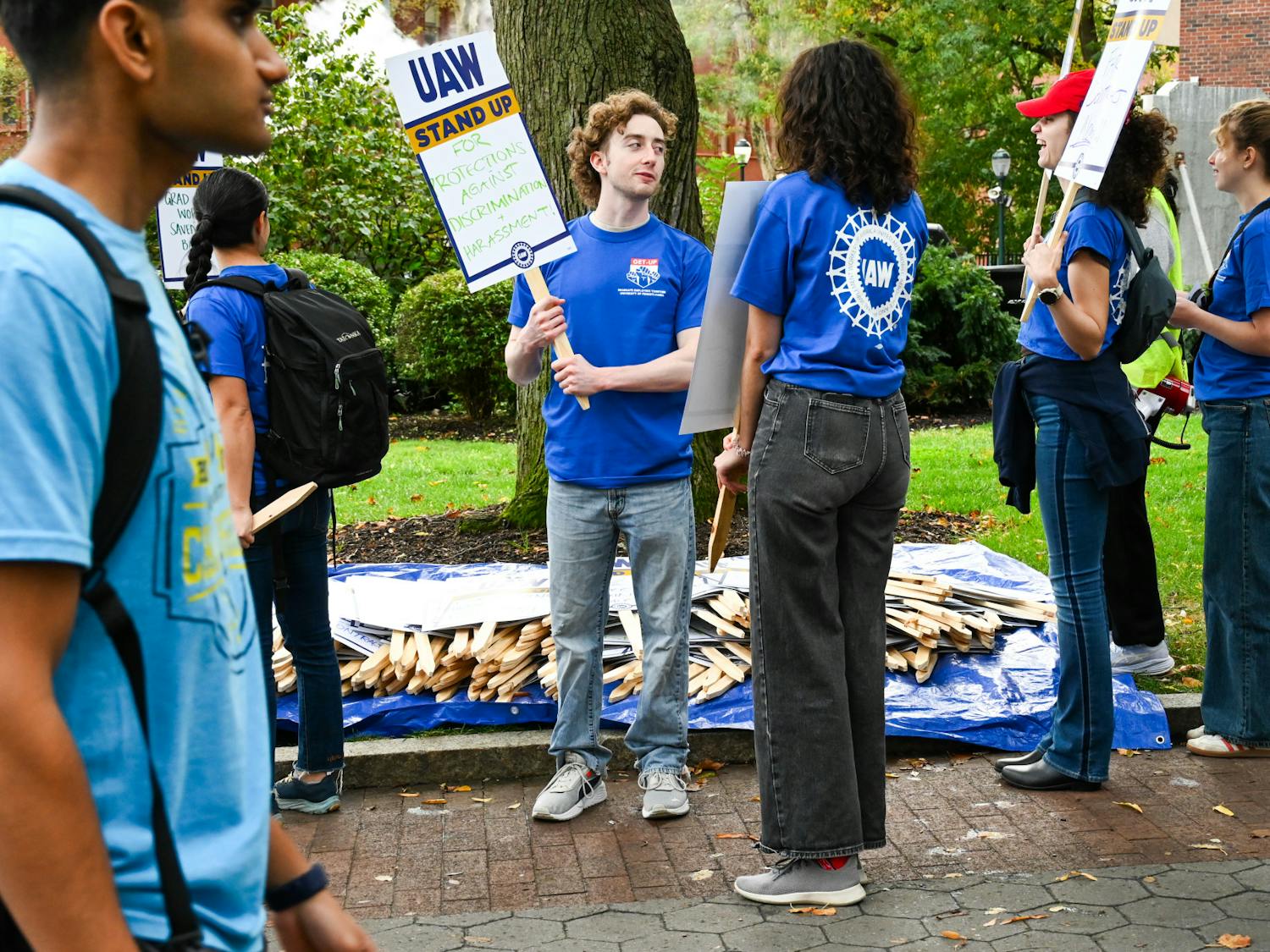The U.S. House Judiciary Committee approved legislation last month that could mean even more trouble for file sharers caught on peer-to-peer networks.
The Piracy Deterrence and Education Act of 2004 calls for up to three years imprisonment for individuals caught sharing more than 1,000 copyrighted works during a six-month period, and up to five years for those sharing the files to make a profit.
Individuals caught video-recording a movie could receive up to six years in federal prison, because the bill removes all fair use protections guaranteed under former copyright law.
With the new legislation, the Recording Industry Association of America has more weaponry to aid its fight against file sharing -- a tactic it needs now that its ability to prosecute has been limited by recent court rulings.
The RIAA has already targeted Penn students on the campus network, and sued a number of students earlier this year for copyright violations.
"Piracy of intellectual property over the Internet, especially on peer-to-peer networks, has reached alarming levels. Low risk and high profit is how criminals view piracy," said Rep. Lamar Smith (R-Texas), who introduced the bill, in a statement last month.
The bill includes a requirement that the Justice Department establish educational programs for the public that will teach "the value of copyrighted works and the effects of the theft of such works on those who create them." Fifteen million dollars will be appropriated for this purpose.
The education program also authorizes the Justice Department to notify Internet service providers of alleged copyright infringements by their customers, but the ISP has the option of whether or not the notices are forwarded to the subscriber in question.
Gigi Sohn, president of intellectual property advocacy group Public Knowledge, applauded lawmakers "for making voluntary the program under which Internet service providers would pass on to consumers notices from the Justice Department alleging copyright infringement." However, she also voiced concern that taxpayer money was not being used wisely.
The U.S. Supreme Court rejected the RIAA's petition to overturn the 2003 Washington, D.C. appeals court decision in Verizon v. RIAA on Tuesday. The ruling disallowed the RIAA from sending out subpoenas to ISPs and forcing them to provide the names of customers suspected of sharing copyrighted songs.
The RIAA claimed court intervention was necessary, as more than 2.6 billion music files are illegally downloaded each month.
"The Supreme Court's action is a victory for consumers, for the Internet and its continued growth, and it marks the end of a dangerous and illegal subpoena campaign that threatened the constitutional rights of all Americans," said Sarah Deutsch, a vice president and associate general counsel at Verizon Communications.
With this decision, the justices have also implied that the Digital Millennium Copyright Act is not a valid tool for finding copyright violators.
The Piracy Deterrence bill calls for the Federal Bureau of Investigation to "facilitate the sharing among law enforcement agencies, Internet service providers and copyright owners of information concerning acts of copyright infringement" -- sidestepping the Verizon v. RIAA decision.
In the meantime, the RIAA has had to settle for filing "John Doe" lawsuits against anonymous copyright violators identified only by their computer's Internet protocol address.
However, the RIAA is still optimistic. Tuesday's "decision will not deter our ongoing anti-piracy efforts. The 'John Doe' litigation process we have successfully utilized this year continues to be an effective legal tool," said Stanley Pierre-Louis, senior vice president for legal affairs at the RIAA.
Other related intellectual property bills that passed this summer will aid the RIAA as well as the Motion Picture Association of America in curbing infringements.
The acts "will provide federal prosecutors with the flexibility and discretion to bring copyright infringement cases that best correspond to the nature of the crime," said Mitch Bainwol, chief executive officer of the RIAA.
In 2003, the movie and music industries both earned more than $10 billion each in initial U.S. revenue, despite large losses due to online piracy.








